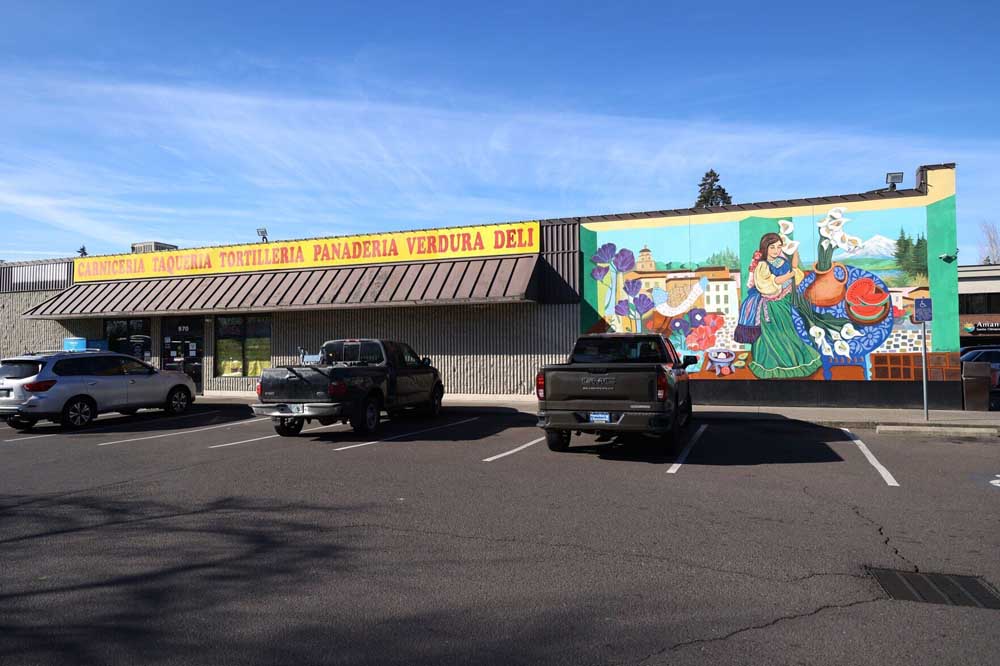‘Shop local and shop Latino’: ICE rumors hurt Hillsboro businesses
Published 5:00 am Tuesday, February 25, 2025

- Supermercados Mexico offers Mexican staples at 970 S.E. Oak St. in Hillsboro. The grocer has taken a major hit as a result of immigration enforcement rumors being spread online.
For 43 years, Su Casa Super Mercado has served customers in Hillsboro’s Calle Diez neighborhood as the first Mexican-owned grocery store registered in Oregon.
Trending
Its aisles, regularly filled with residents stocking up on pantry staples and lining up for fresh cuts of meat, have sat eerily quiet as of late — a stark shift since late January.
Isabell Mendoza, who co-owns the store with her husband, Rafael, has watched business plummet over the past month, with pushes for federal crackdowns on immigration enforcement leaving community members fearful of what’s to come.
According to Mendoza, misinformation on social media has fueled false rumors that U.S. Immigration and Customs Enforcement has been conducting raids in local businesses — and sent customers into hiding.
Trending
“Everybody has been on social media spreading rumors that aren’t true,” Mendoza said. “I had one of the agencies in Washington County stop by and ask, ‘Is it true that immigration swept out Su Casa?’”
“It was worse than this. I was alone,” she said while gesturing to near-empty aisles. “People were scared to come; it was all over social media that immigration had swept here.”
“I don’t know how they think, but honestly, that’s just doing damage to other people instead of us helping each other in these difficult times.”
Just across the street, Supermercados Mexico has felt the same chilling effects of misinformation. Store manager Jorge Chavez said daily sales have tanked by thousands of dollars as rumors falsely claimed ICE had visited the Mexican goods store.
Federal versus local immigration policy
Since taking office in January, President Donald Trump has enacted a string of executive orders reshaping U.S. immigration policy — halting refugee admissions, deploying additional troops to the southern border and cutting funding to organizations that support undocumented immigrants.
In a bid to push campaign promises of mass deportations, Trump also threw out restrictions on where immigration arrests can take place, allowing enforcement officers to detain migrants in sensitive locations like schools and churches.
But as the frenzy plays out on a national scale, how those policies are enforced on a local level is a different conversation.
The city of Hillsboro has been a sanctuary city since 2017, meaning local law enforcement agencies cannot inquire about immigration status or participate in federal immigration enforcement efforts.
Oregon law further prohibits local police from using public resources to assist in immigration enforcement.
“Providing a safe community means being at the service of any individual or group that needs or believes it needs public safety services, regardless of personal characteristics or status, including being Latino or one’s current immigration status,” Hillsboro Police Chief Jim Coleman told the News-Times.
As of Monday, Feb. 24, Coleman said the department has not been made aware of “any specific federal immigration enforcement actions in Hillsboro,” though he did not rule out the possibility of actions it was not notified of.
But while city officials won’t enforce federal efforts, officials acknowledge Hillsboro has little power to shield residents from federal immigration enforcement.
“Although we do not control what happens nationally, we do live our values here in Hillsboro,” Mayor Beach Pace said during the city’s annual address on Feb. 20. “In Hillsboro, we listen. In Hillsboro, we’re still committed to Diversity, Equity & Inclusion. In Hillsboro, we still see and value all community members, including our neighbors who have proudly immigrated here and who make our community truly special.”
Calls for local support
As businesses struggle, Mendoza said she feels abandoned by local leaders and organizations, which she believes could be doing more to support impacted residents.
“We’re affected by things like this that we need to take better control of; we need help from the people in high positions,” Mendoza said.
In an attempt to address gaps, Washington County nonprofit Centro Cultural has been taking steps to assist businesses struggling as trepidation takes hold.
“(Calle Diez) is a very Latino-populated part of Hillsboro, and we’re seeing it deeply impacted,” said Centro’s Policy Director Nansi Lopez. “We’re hearing inklings of it almost being like COVID times — not just in businesses but in schools and places of faith.”
Educating community members has been a crucial initial step, according to Lopez, who noted that Centro has equipped stores with “know your rights” cards to keep community members informed.
“As soon as we were informed of the fears that people were experiencing, we wanted to make sure that the community understood that we’re there to support them and offer the resources and information that they need. And as it pertains to this issue, it was clear that people wanted to educate themselves on what they can and cannot do if they are, in fact, in a situation where ICE is in their business,” Lopez said.
Keeping residents accurately informed and building solidarity with businesses are major goals moving forward for Centro, as the nonprofit organization plans to continue dialogue with local businesses and find new avenues for support.
On the city’s end, Pace spoke to broader efforts in Hillsboro to develop an equitable development strategy for the Calle Diez neighborhood, aiming to address displacement and gentrification pressures that disproportionately affect Latino residents.
“Our immigrant community is hurting right now,” Pace said. “Many live in fear, including their children, and we are constantly working to strengthen our relationship so that we stay united as one Hillsboro. Our leadership has participated in listening sessions with our Latino community members. We are making an intentional effort to hear their diverse lived experiences so we can incorporate their input into decision-making.”
Her message to Hillsboro residents was simple: “Shop local and shop Latino.”






